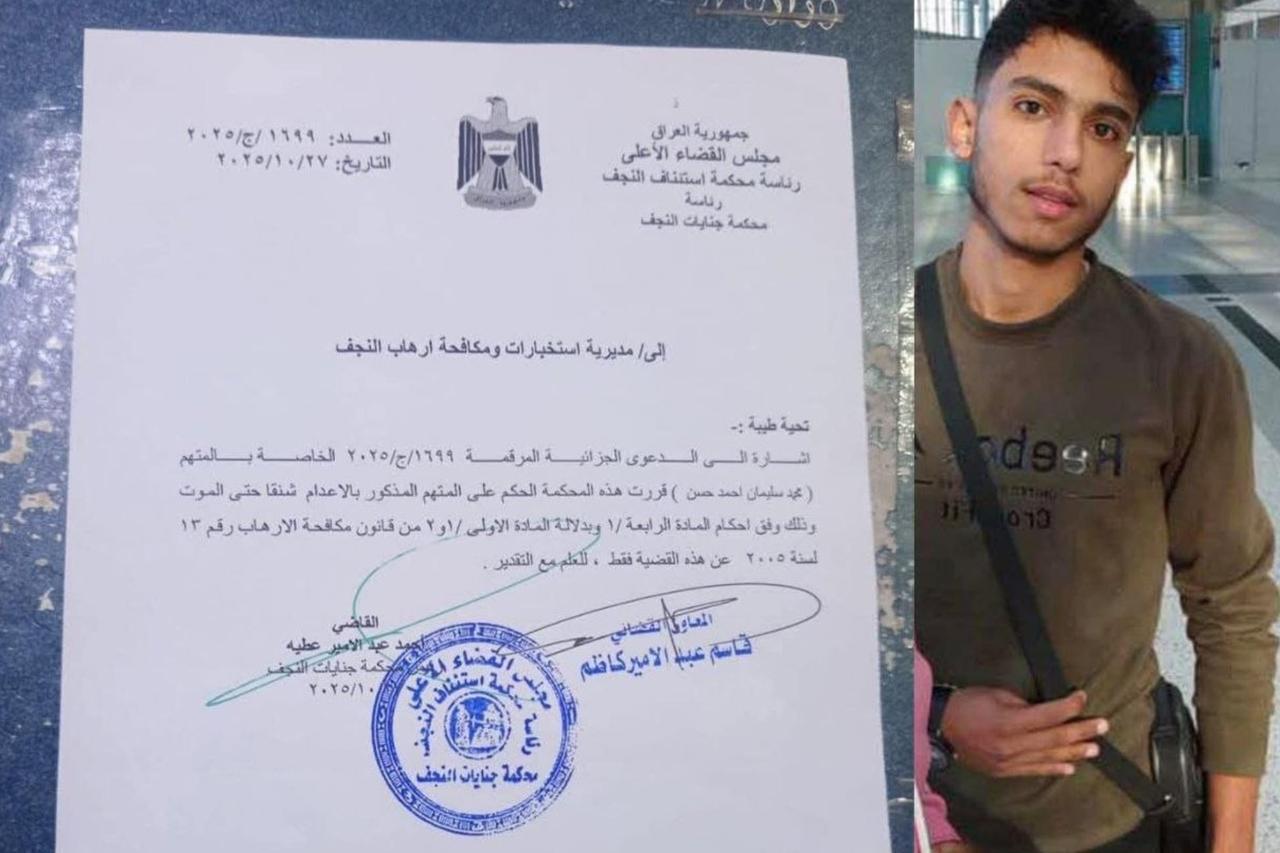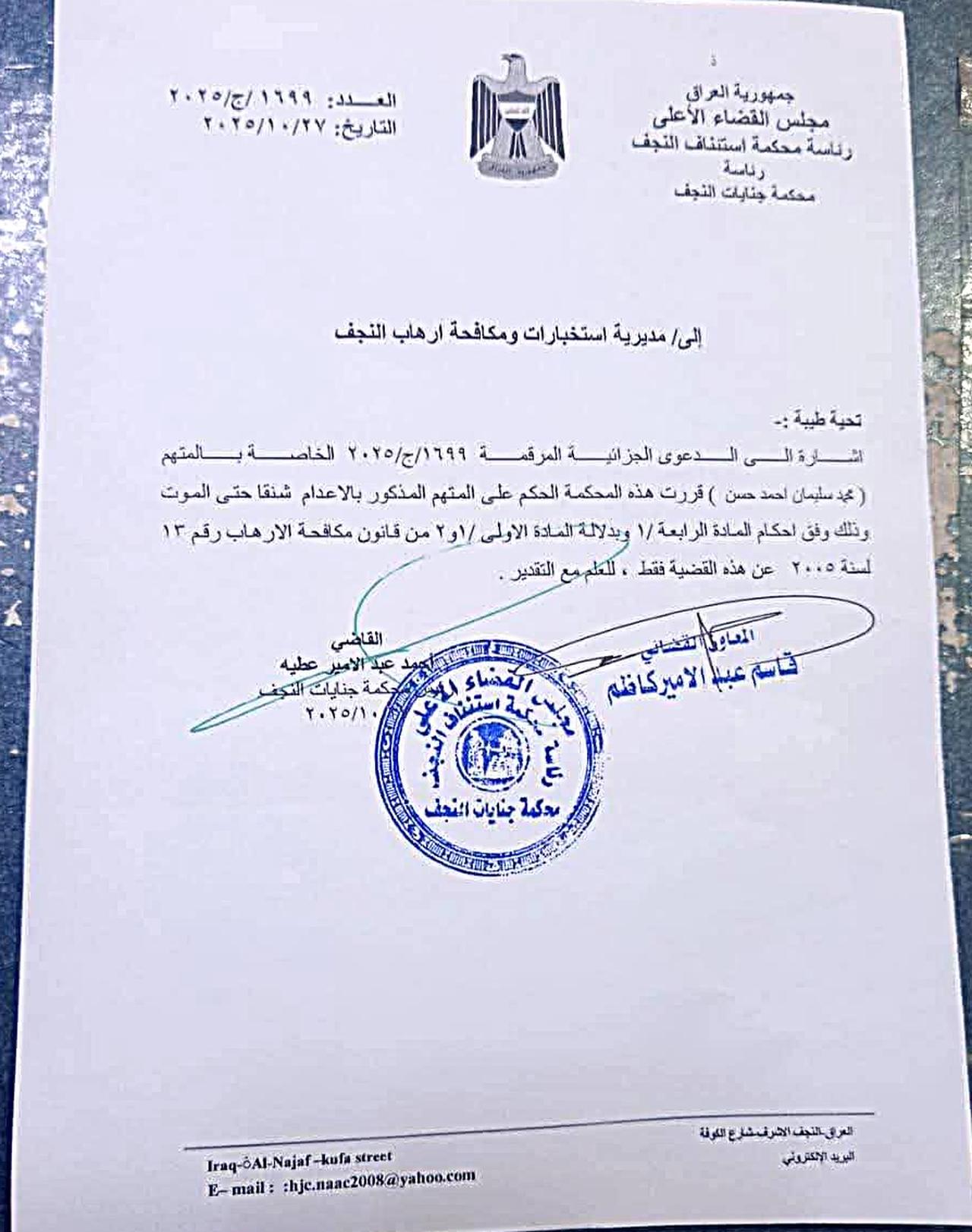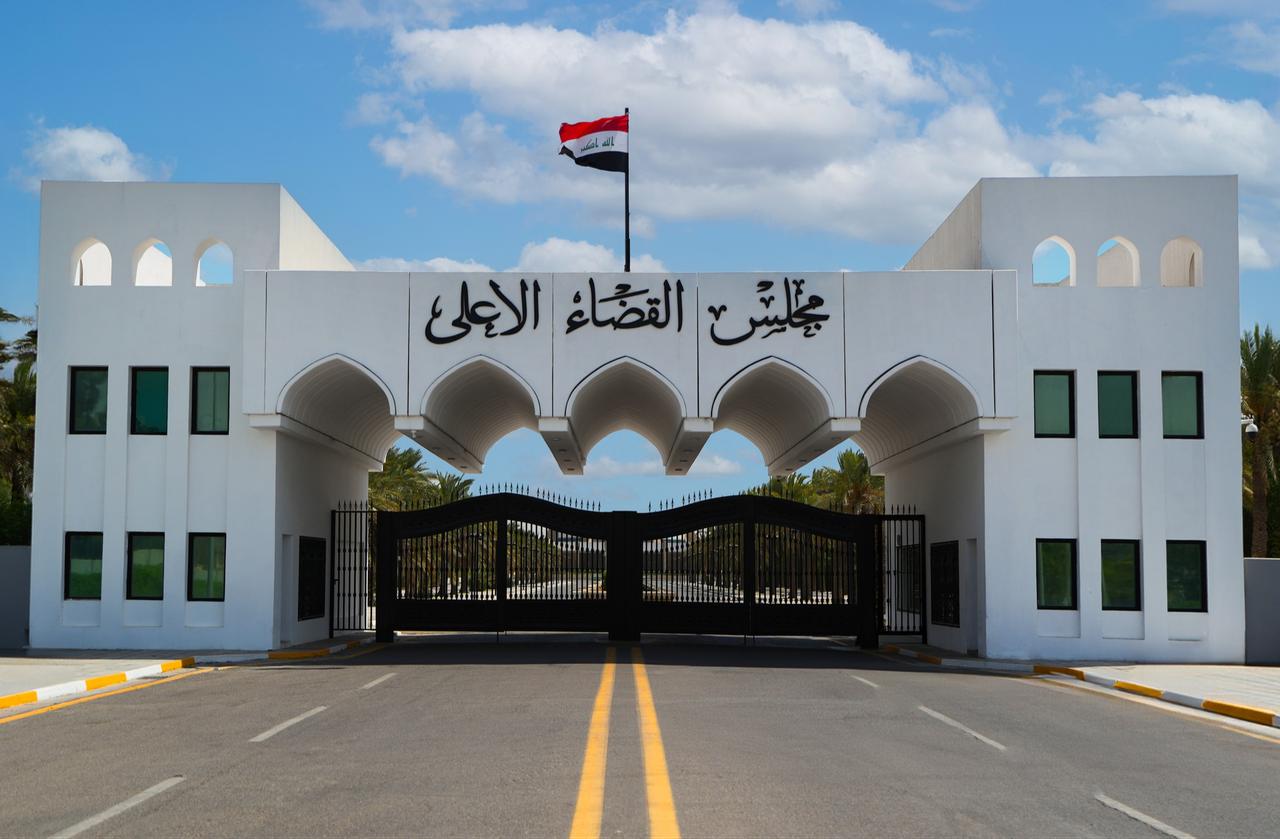
The Najaf Court in Iraq has sentenced 22-year-old Syrian national Mohammed Suleiman Ahmad Hassan, from Homs province, to death after his arrest on charges of posting a video on his Facebook page showing Syrian President Ahmed al-Sharaa, Syrian media reported.
During the inspection of his phone, authorities found photos and videos of President al-Sharaa, along with footage dating back to the period of the war in Syria.
According to available information, the video shows members of the Free Syrian Army capturing fighters from the Iraqi al-Nujaba Movement, an Iraqi Shiite armed faction founded in 2013.

Several Syrian journalists shared an image of a document purportedly issued by the Criminal Court in Najaf, showing the death sentence against the young man.
While the authenticity of the circulated document has not been verified, the young man’s family reported that Iraqi authorities arrested Mohammed and his brother in March 2025 while they were in Iraq.
They said that Iraqi authorities later released his brother while keeping Mohammed in detention.
The Syrian Ministry of Foreign Affairs announced that it is following up on the case through official channels.
Mohammad al-Ahmad, Director of the Arab Affairs Department at the ministry, said in a post on X that the ministry is coordinating with the Iraqi government regarding reports of a death sentence issued against a Syrian citizen by the Najaf Court, pending verification of the authenticity of the published document and its proper legal follow-up.

The Supreme Judicial Council’s Media Center in Iraq denied claims circulating on social media that a Syrian national had been sentenced to death by the Najaf Criminal Court for posting a video praising al-Sharaa.
According to an official statement issued Tuesday, the ruling against the defendant was unrelated to any political expression concerning Syria.
Instead, the sentence was issued for “confessing to glorifying the deceased terrorist Abu Bakr al-Baghdadi and for promoting the killing of members of the Iraqi army and the Popular Mobilization Forces in Tarmiyah.”
The center added that the defendant had published videos inciting violence, called on individuals to join Daesh, and circulated footage of himself burning an image of Imam Ali — actions described as attempts to provoke chaos and sectarian strife within Iraqi society.
The media center stressed that the ruling is not final and remains subject to automatic review by the Federal Court of Cassation once the case file reaches it.